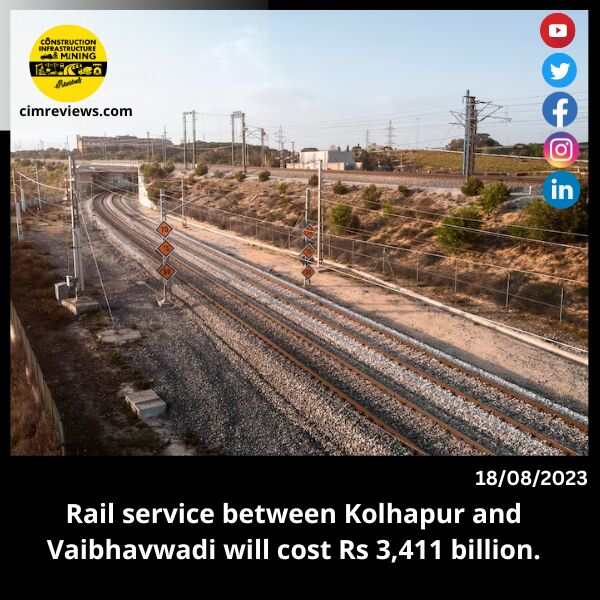
In the realm of transportation and infrastructure development, rail connectivity has always played a pivotal role in fostering economic growth and improving connectivity between regions. One such ambitious project that has been making headlines is the proposed rail service between Kolhapur and Vaibhavwadi in India. This project, estimated to cost a staggering Rs 3,411 billion, has the potential to transform the region’s connectivity and usher in a new era of progress.
The Need for Enhanced Connectivity: Kolhapur, known for its rich cultural heritage and economic significance, has long felt the need for improved connectivity to neighboring regions. Vaibhavwadi, located in Maharashtra’s Ratnagiri district, is another important area that stands to benefit from this rail link. Currently, travel between these two regions involves long hours on road, with inadequate infrastructure hindering efficient transportation and economic development.
Project Highlights: The proposed rail service between Kolhapur and Vaibhavwadi is set to be a game-changer in the region’s transportation landscape. The project’s highlights include:
- Reduced Travel Time: The rail link promises to significantly reduce the travel time between Kolhapur and Vaibhavwadi, making it a convenient and efficient mode of transportation for both passengers and freight.
- Boost to Economy: Improved connectivity often leads to increased economic activity. The rail service has the potential to open up new avenues for trade, tourism, and investment, boosting the economies of both regions.
- Enhanced Connectivity: Apart from its direct benefits, this rail link could serve as a crucial link in the larger network, connecting major cities and regions. This integration could lead to a more seamless movement of people and goods across the country.
- Employment Opportunities: The construction and subsequent operation of the rail service will create numerous job opportunities for both skilled and unskilled labor, providing a much-needed boost to the local workforce.
Challenges and Considerations: While the prospect of improved connectivity and economic growth is exciting, any large-scale infrastructure project comes with its fair share of challenges:
- Cost: The estimated cost of Rs 3,411 billion is undeniably substantial. Allocating funds and managing budgets will be a critical aspect of ensuring the project’s success without burdening the public or compromising on quality.
- Environmental Impact: Infrastructure development often has environmental repercussions. The project planners must carefully consider the ecological impact and take measures to mitigate any adverse effects.
- Land Acquisition: Acquiring the necessary land for the rail project might pose challenges, considering potential land disputes and the need for rehabilitation of affected communities.
- Technical Complexities: Building a rail link involves intricate engineering and design considerations. Ensuring safety, stability, and operational efficiency will require collaboration between experts from various disciplines.
Funding and Implementation: Financing a project of this magnitude is a complex task. The government, private sector investments, and possibly international partnerships could all play a role in funding the project. It’s essential to have a clear roadmap for implementation, addressing both short-term and long-term requirements.
Group Media Publication
Construction, Infrastructure and Mining
General News Platforms – IHTLive.com
Entertainment News Platforms – https://anyflix.in/
Podcast Platforms – https://anyfm.in/



